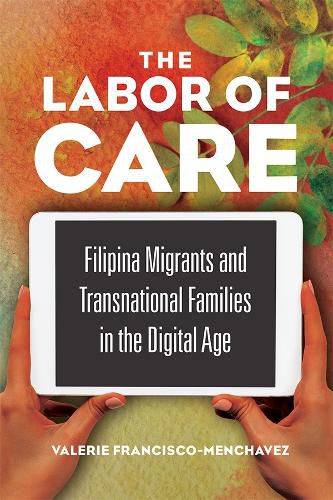Readings Newsletter
Become a Readings Member to make your shopping experience even easier.
Sign in or sign up for free!
You’re not far away from qualifying for FREE standard shipping within Australia
You’ve qualified for FREE standard shipping within Australia
The cart is loading…






For generations, migration moved in one direction at a time: migrants to host countries, and money to families left behind. The Labor of Care argues that globalization has changed all that. Valerie Francisco-Menchavez spent five years alongside a group of working migrant mothers. Drawing on interviews and up-close collaboration with these women, Francisco-Menchavez looks at the sacrifices, emotional and material consequences, and recasting of roles that emerge from family separation. She pays particular attention to how technologies like Facebook, Skype, and recorded video open up transformative ways of bridging distances while still supporting traditional family dynamics. As she shows, migrants also build communities of care in their host countries. These chosen families provide an essential form of mutual support. What emerges is a fascinating portrait of today’s transnational family-sundered, yet inexorably linked over the distances by timeless emotions and new forms of intimacy.
$9.00 standard shipping within Australia
FREE standard shipping within Australia for orders over $100.00
Express & International shipping calculated at checkout
For generations, migration moved in one direction at a time: migrants to host countries, and money to families left behind. The Labor of Care argues that globalization has changed all that. Valerie Francisco-Menchavez spent five years alongside a group of working migrant mothers. Drawing on interviews and up-close collaboration with these women, Francisco-Menchavez looks at the sacrifices, emotional and material consequences, and recasting of roles that emerge from family separation. She pays particular attention to how technologies like Facebook, Skype, and recorded video open up transformative ways of bridging distances while still supporting traditional family dynamics. As she shows, migrants also build communities of care in their host countries. These chosen families provide an essential form of mutual support. What emerges is a fascinating portrait of today’s transnational family-sundered, yet inexorably linked over the distances by timeless emotions and new forms of intimacy.